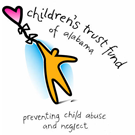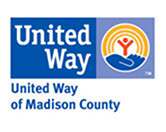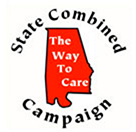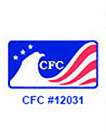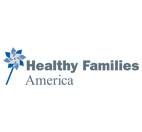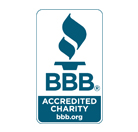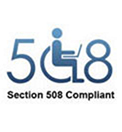This social media toolkit is intended to help provide parenting tips for members of the community. Topics include Family Codes of Conduct, Online Safety, Sleepovers, and more.
Social media is an outstanding tool in educating the public about child abuse prevention. Research shows that 80% of Americans believe social media is effective in raising public awareness about social issues including child safety. At least half of the adult population in the United States uses social media. Together, we can harness the power of social media to help make Alabama a safer place for our children.
Questions about this toolkit? Contact Pam Clasgens pclasgens@nationalcac.org.
Instructions
For Text: Highlight text. While text is highlighted, right click and choose copy. Navigate to social media page and in space intended for text right click the mouse and choose paste.
CLICK HERE TO DOWNLOAD GRAPHICS. Save file to computer. Upload video to social media page from saved location.
 Organizations that serve children have Codes of Conduct with rules to keep kids safe from sexual abuse. Your family can have a Code of Conduct, too. Your family’s Code of Conduct can set clear rules for safety, boundaries, respect, personal privacy and behavior for the whole family. Involve your kids and talk about it with all family members. Share it with any adult who will spend time with your kids. Model following the rules. Update your family Code of Conduct as often as needed. You can learn more here: https://bit.ly/3RQtqiV and here: https://bit.ly/2Nx1yQ4
Organizations that serve children have Codes of Conduct with rules to keep kids safe from sexual abuse. Your family can have a Code of Conduct, too. Your family’s Code of Conduct can set clear rules for safety, boundaries, respect, personal privacy and behavior for the whole family. Involve your kids and talk about it with all family members. Share it with any adult who will spend time with your kids. Model following the rules. Update your family Code of Conduct as often as needed. You can learn more here: https://bit.ly/3RQtqiV and here: https://bit.ly/2Nx1yQ4
 Using the proper names of private body parts right from the start can protect children from sexual abuse. Knowledge is power. Abusers are less likely to target children who have information. Use this guide to begin the discussion: https://bit.ly/3UfZRJb
Using the proper names of private body parts right from the start can protect children from sexual abuse. Knowledge is power. Abusers are less likely to target children who have information. Use this guide to begin the discussion: https://bit.ly/3UfZRJb
Find out how to talk with kids of different ages here: https://bit.ly/2AgWomG
 It’s never too soon to talk to your child about body safety and healthy relationships. Check out Darkness to Light’s Healthy Sexual Development Guide that explains what behavior is healthy from ages 0-8 years old: https://bit.ly/3eZfKDP
It’s never too soon to talk to your child about body safety and healthy relationships. Check out Darkness to Light’s Healthy Sexual Development Guide that explains what behavior is healthy from ages 0-8 years old: https://bit.ly/3eZfKDP
As your children grow, talk with your family often about healthy vs. unhealthy behaviors, safety, boundaries, consent and your family’s values. Here’s a great resource for talking to kids at different ages: https://bit.ly/2AgWomG
To learn more check out https://bit.ly/3Lnkj6N
 Ask your kids where they are going, what they are doing, and who they are spending time with online. Talk to your children often about your family’s values, boundaries, consent and healthy relationships both offline and online. Ask what they think and take time to listen. Check out NetSmartz: https://www.missingkids.org/netsmartz and https://bit.ly/3S0Vy2u
Ask your kids where they are going, what they are doing, and who they are spending time with online. Talk to your children often about your family’s values, boundaries, consent and healthy relationships both offline and online. Ask what they think and take time to listen. Check out NetSmartz: https://www.missingkids.org/netsmartz and https://bit.ly/3S0Vy2u
 Before, during and after school, on weekdays and weekends, and throughout the year, your kids may be involved in all sorts of activities such as sports, dance, band, camps, religious groups and much more. Find out what these organizations are doing to prevent sexual abuse of children they serve. Ask how the staff and volunteers are trained about child sexual abuse prevention. What are the rules about contact between the staff and volunteers and the children? What rules keep the children safe?
Before, during and after school, on weekdays and weekends, and throughout the year, your kids may be involved in all sorts of activities such as sports, dance, band, camps, religious groups and much more. Find out what these organizations are doing to prevent sexual abuse of children they serve. Ask how the staff and volunteers are trained about child sexual abuse prevention. What are the rules about contact between the staff and volunteers and the children? What rules keep the children safe?
For more topics to ask about, check out Darkness to Light’s Parent’s Guide to Selecting Youth Serving Organizations: https://bit.ly/2n0SISi and The Mama Bear Effect’s Guide to Keeping Kids Safe from Sexual Abuse: https://bit.ly/3RRxq2q
For 9 questions and the answers you should expect, here’s a tip sheet from Stop in Now! https://bit.ly/3BMm36l
 Finding a babysitter or nanny you trust can take time. Let any potential caregivers know that your child knows about personal safety and sexual abuse. Find more suggestions in Darkness to Light’s Tips for Hiring Caregivers Guide: https://bit.ly/3Bq1vzc and for tips for talking to your child about body safety, check out: https://bit.ly/3r2ql3D
Finding a babysitter or nanny you trust can take time. Let any potential caregivers know that your child knows about personal safety and sexual abuse. Find more suggestions in Darkness to Light’s Tips for Hiring Caregivers Guide: https://bit.ly/3Bq1vzc and for tips for talking to your child about body safety, check out: https://bit.ly/3r2ql3D
 You can talk to the other adult(s) about expectations such as no baths, no closed doors, and who will be in the home. Here are some tips from Darkness to Light’s Checklist for Safer Sleepovers Guide: https://bit.ly/3ROhv4V
You can talk to the other adult(s) about expectations such as no baths, no closed doors, and who will be in the home. Here are some tips from Darkness to Light’s Checklist for Safer Sleepovers Guide: https://bit.ly/3ROhv4V


